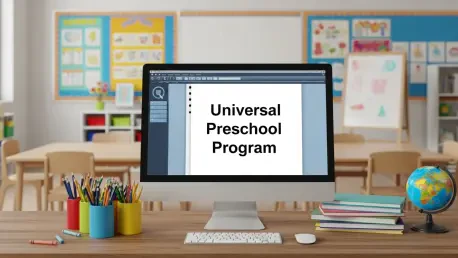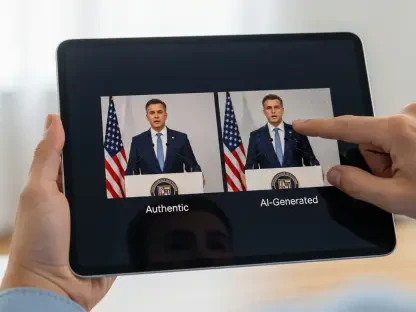I’m thrilled to sit down with Donald Gainsborough, a renowned political savant and leader in policy and legislation, who heads Government Curated. With his deep expertise in shaping educational initiatives, Donald has been instrumental in guiding states through the integration of technology in early childhood education. Today, we’ll dive into Colorado’s groundbreaking universal preschool program, the transformative role of technology in boosting enrollment, and how data and software are ensuring equitable access for all families. Our conversation will explore the innovative strategies behind these advancements, the impact on communities, and the future of such initiatives.
How did Colorado’s universal preschool program come about, and what was its primary vision when it launched in 2023?
The universal preschool program in Colorado was born out of a 2022 legislative bill aimed at ensuring every four-year-old in the state could access quality early education. When it launched in July 2023, the primary vision was to remove barriers that had previously limited participation—things like family income or developmental challenges—and offer a universal solution. The goal was to provide 15 hours of weekly preschool in various settings, whether community-based, school-based, or even home-based, so that every child could start their educational journey on a strong footing.
What sets this new program apart from the state-funded preschool initiative that ended in 2022-2023?
The earlier program, which wrapped up in the 2022-2023 school year, was much more restrictive. It targeted specific groups of children based on qualifying factors like economic hardship or developmental needs. Less than 25% of four-year-olds were enrolled under that model. The new universal program flips that on its head by making preschool available to all four-year-olds, regardless of background. It’s about inclusivity and expanding access, which has led to a dramatic jump in enrollment.
Can you paint a picture of how preschool enrollment has shifted in Colorado over the past few years?
Absolutely. Before the universal program kicked off, enrollment was pretty low—under 25% of four-year-olds were in the state-funded system during the 2022-2023 school year. Fast forward to the 2023-2024 school year, after the universal program launched, and we saw that number soar to 70% of eligible kids. That’s a huge leap, and it reflects both the policy shift toward universality and the practical tools that made signing up easier for families.
What role has technology, particularly the BridgeCare software, played in driving this enrollment surge?
Technology has been a game-changer, and the BridgeCare platform is at the heart of it. This software-as-a-service tool simplifies the entire process for families by letting them browse preschool options on an interactive map, filter by location, transportation needs, or specific child requirements, and even apply directly through the platform. For providers, it streamlines application and enrollment management while keeping data accurate through integration with the state’s licensing system. It’s a win-win that’s made participation feel seamless and accessible, which directly boosted those enrollment numbers.
How has the user experience been for families and caregivers interacting with the BridgeCare platform?
The feedback has been overwhelmingly positive. A customer satisfaction survey showed that 90% of users were happy with how the platform works for applying and enrolling. Families appreciate how intuitive it is to find programs that fit their needs, whether it’s language support or specialized care. The Colorado Department of Early Childhood is taking that feedback seriously, using it to tweak the platform and ensure it stays user-friendly and responsive to what families actually want.
In what ways does the BridgeCare platform support adaptability to policy changes or funding challenges?
One of the platform’s biggest strengths is its flexibility. Policies and budgets in education can shift quickly—whether it’s a new state law or a federal mandate—and BridgeCare’s modular design allows for rapid updates. For example, if budget cuts force providers to limit seats, they can update their availability on the platform almost instantly, keeping families in the loop. This adaptability is crucial for maintaining trust and ensuring the universal preschool program can respond to real-time challenges without missing a beat.
How is technology helping to promote fairness and equity in access to preschool education across Colorado?
Technology, through platforms like BridgeCare, is giving us the data we need to tackle equity head-on. The system collects demographic details like ethnicity, income, location, and language preferences from users. This information helps the state analyze whether all families are being served equally or if certain groups are falling through the cracks. Having this data at our fingertips means we can ask tough questions about fairness and take actionable steps to close any gaps, ensuring the program truly serves every corner of Colorado.
What’s your forecast for the future of technology in early childhood education, particularly in programs like Colorado’s universal preschool initiative?
I’m incredibly optimistic about where this is headed. Technology will continue to break down barriers, making education more accessible and personalized for families. In Colorado, I foresee platforms like BridgeCare evolving to offer even deeper support—think predictive tools that anticipate family needs or integrations with other social services. Beyond that, I expect other states to take note and adopt similar tech-driven models, creating a ripple effect that could transform early childhood education nationwide. The key will be staying focused on equity and usability as these tools scale.









